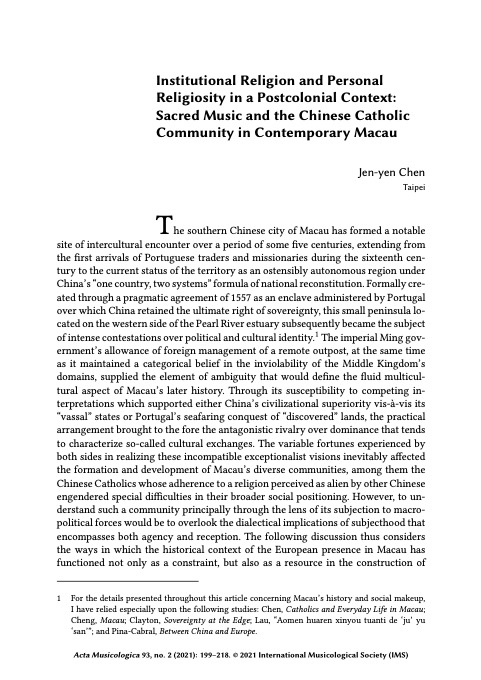Abstract
This article examines how Macau’s Chinese Catholic believers have negotiated a highly personal sense of their faith in the postcolonial context that followed the end of Portuguese administration of the territory in 1999. The agency of the members of this community indicates that they can be regarded neither as the acculturated subjects of a lingering colonial inheritance nor as conforming to a new Chinese ascendancy. Their engagement with traditional genres of Catholic liturgical music, notably localizing in its remaking of an established system of ritual-musical semiotics, provides evidence for their own active formation of identity. Without eschewing the notion of epistemic violence central to discursive analyses of intercultural encounters, the present discussion focuses equally on agency in order to offer a counterbalancing emphasis upon individuals and their construction of a distinctive spiritual outlook at a micro-social level.
